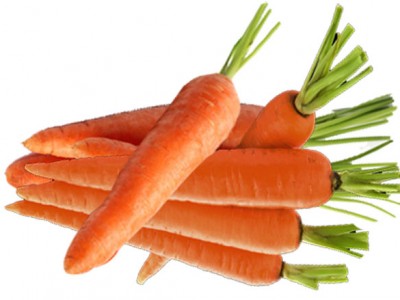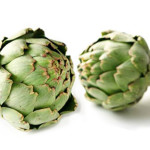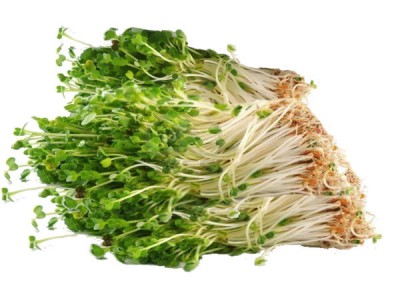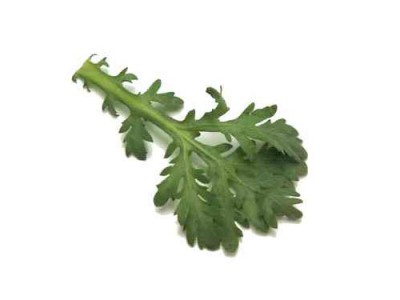

Artichoke Nutrition Information , Health Facts
About Artichoke
Scientifically known as Cynara scolymus, artichoke is a vegetable that has a very rich history.The legend has it that when Greek god Zeus was on his way to visit his brother Posiedon, he got attracted to a girl named Cynara who was mortal and belonged to an island named Zari. Zeus seized the opportunity and offered her a place in Olympia where she would be closer to him. Soon, Cynara grew homesick and eloped out of Olympia to visit her mother, which according to Zeus, was ungodly behavior of her part. Furious at her actions, Zeus turned her into an Artichoke and sent her back to earth. And this is how Artichoke came to existence.
Artichoke, an Edible flower that falls into the vegetable category, is scientifically known as Cynara scolymus. It is also known by the names French artichoke and green artichoke. It has the characteristics of a thorny and hard exterior, which may be deceptive, but its inner bud is highly nutritious and flavorsome. Back in 16th century, eating artichoke was just reserved for men, as it was considered to be an aphrodisiac, and women were denied the pleasure of consuming it because it was thought to enhance sexual powers.
Artichokes were first cultivated in Napels in the 15th century, and later, the French introduced them to the U.S.A during 1800’s. They are grown in the Mediterranean regions such as California, nearly one hundred percent of all artichokes grown commercially in USA are grown in California. This place also happens to be the land of high life expectancy rate and with the lowest rate of chronic diseases. Its silvery green leaves grow to the extent of 3 ft tall, thus protecting the edible bud inside.
Artichoke Nutrition Facts
- Artichoke is low in calories and fat.
- 100 g of this flower bud just carries 47 calories. Nonetheless, it is a rich source of dietary fiber and anti-oxidants.
- It provides 5.4 g per 100 g, about 14% of RDA fiber. Dietary-fiber helps control constipation conditions, decreases bad or “LDL” cholesterol levels by binding to it in the intestines and help cut down colon cancer risks by preventing toxic compounds in the food from absorption.
Health Benefits of Artichoke
- Good remedy for providing relief from hangover.
- Reducing the presence of toxins.
- Improve bone health and density.
- Stimulates production secretion of gastric juices and bile juices.
- Preventing neural tube defects in new born.
- Improving Brain Health and metabolic processes.
- Reduces levels of bad cholesterol and increases levels of good cholesterol.
Interesting Facts
The highest amount of vitamins and nutrients are contained within the vegetable’s skin and the layer directly underneath it.
Artichoke Keep Liver Healthy
Eating artichokes can help to look after your health by keeping the liver protected
| Principle | Nutrient Value | Percentage of RDA |
|---|---|---|
| Energy | 47 Kcal | 2% |
| Carbohydrates | 10.51 g | 8% |
| Protein | 3.27 g | 6% |
| Total Fat | 0.15 g | 0.5% |
| Cholesterol | 0 mg | 0% |
| Dietary Fiber | 5.4 g | 14% |
| Vitamins | ||
| Folates | 68 µg | 17% |
| Niacin | 1.046 mg | 6.5% |
| Pantothenic acid | 0.338 mg | 7% |
| Pyridoxine | 0.116 mg | 9% |
| Riboflavin | 0.066 mg | 5% |
| Thiamin | 0.072 mg | 6% |
| Vitamin C | 11.7 mg | 20% |
| Vitamin A | 13 IU | 0.5% |
| Vitamin E | 0.19 mg | 1% |
| Vitamin K | 14.8 µg | 12% |
| Electrolytes | ||
| Sodium | 94 mg | 6% |
| Potassium | 370 mg | 8% |
| Minerals | ||
| Calcium | 44 mg | 4% |
| Copper | 0.231 mg | 27% |
| Iron | 1.28 mg | 16% |
| Magnesium | 60 mg | 15% |
| Manganese | 0.256 mg | 11% |
| Phosphorus | 90 mg | 13% |
| Selenium | 0.2 µg | <0.5% |
| Zinc | 0.49 mg | 4.5% |
| Phyto-nutrients | ||
| Carotene- alpha | 8 µg | |
| Crypto- xanthin | 0 µg | |
| Lutein- zeaxanthin | 464 µg |
Doctors highly recommend the consumption of Artichoke because of its no fat value and a calorie count of only 25. Loaded with nutrition artichokes are an inventory to many other nutrients such as magnesium which helps in building stronger bones, vitamin c vital in having a good immune system also aids in the absorption of iron. Artichokes are an excellent source of dietary fiber that reduces the risk of cholesterol and keeps blood pressure under control. One artichoke consists of 10.3 grams of dietary fiber which is essential for a good digestive system as it enhances metabolism.
How To Enjoy Artichoke
Artichokes are the best winter vegetables and popular across the Mediterranean regions like Europe. Baby artichokes can be readily consumed with the pine where as the globe artichoke will need some scaling off of the prickly pines. All these hassles can be put to rest, thanks to the supermarket where fresh buds are readily available for consumption. Artichokes can be mixed with vegetables, can be barbequed or char grilled or can even be stuffed with meat and sea food. Many people shed off the stem and eat only the bud, the stem can also be consumed as it taste just like the heart of Artichoke. This vegetable is very well treated and does not manifest any allergic reaction to the general population.
Artichoke known for its therapeutic properties is also a key ingredient in the manufacturing of Cynar. This liqueur has a distinct flavour and is made by infusing 13 plants and herbs making it a complete natural drink.Artichoke is one of the most versatile vegetable and is considered a must have in everyone’s diet.




